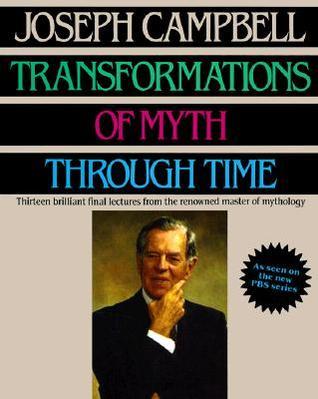I've heard of Joseph Campbell for years because of his contributions to the Hero's Journey / Hero With a Thousand Faces so far as storytelling goes. From his analyses we get the circular quest shape of stories like King Arthur. From him we see certain recurring patterns in myths from around the world, and the archetypal characters who act them out for us. So I was pretty disappointed to see what a poor scholar he was in this collection of essays and speeches on mythology.
Because Campbell does not believe there is such a thing as a god (or a God), he makes the unacademic mistake of interpreting symbols from myth and many religions of the world through his belief system of a general godless Buddhism. See that Greek or Roman or Celtic symbol of the snake in this or that tapestry or piece of ancient pottery? That's the symbol of rebirth and reincarnation, because snakes shed their skins, you see. And the serpent of Judeo-Christian iconography? Well it's exactly the same! It means rebirth. What a joke this book is! That's not what it means there at all! Quite the opposite.
This man, at least in this book, is as unscholarly and unserious as they come. He is an unlearned fool. You interpret a text by by its own self, in context, according to the time and place it came out of, and all cultures have different symbols and metaphors and archetypes, many of them contrary to one another. Campbell makes the mistake of passing everything, and I mean everything, in history through his own belief system, and ends up muddying the water for everyone. He draws unreasonable conclusions, lumping things together that have opposite meanings in the societies from which they came. Plus, he spells quite a few things wrong in this book.
I do intend to read some of his other books, but now I have much more miniscule expectations of any knowledge, let alone wisdom, to be learned there. If his other books are anything like this one I'm liable to laugh my way through those as well. Wait, maybe these are supposed to be comedy? Is this meant to be a parody of the way self-important lecturers just project random meanings onto things that were never intended to be conveyed, to the point of absolute absurdity? If so, then bravo - well done, Joe.

